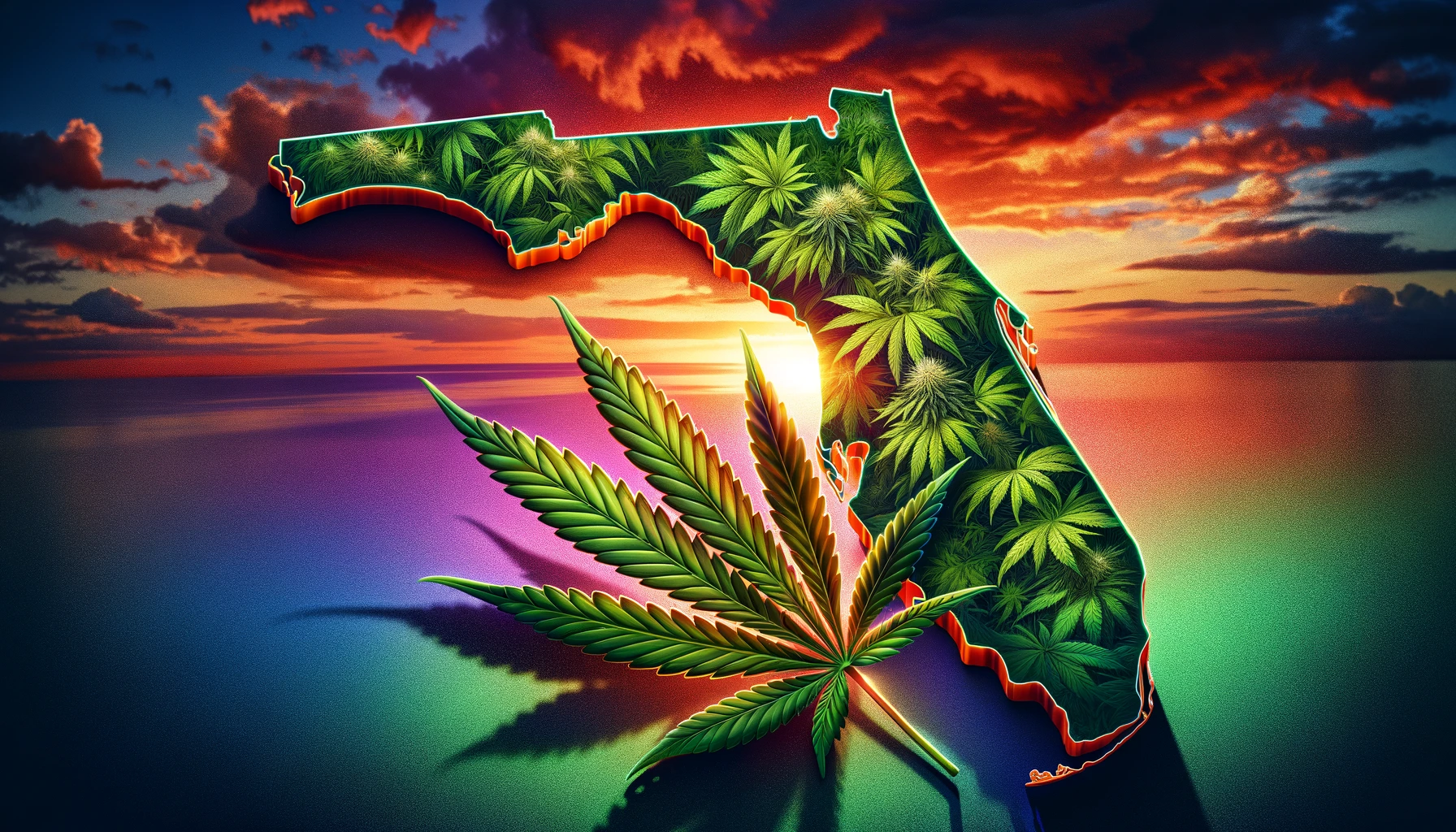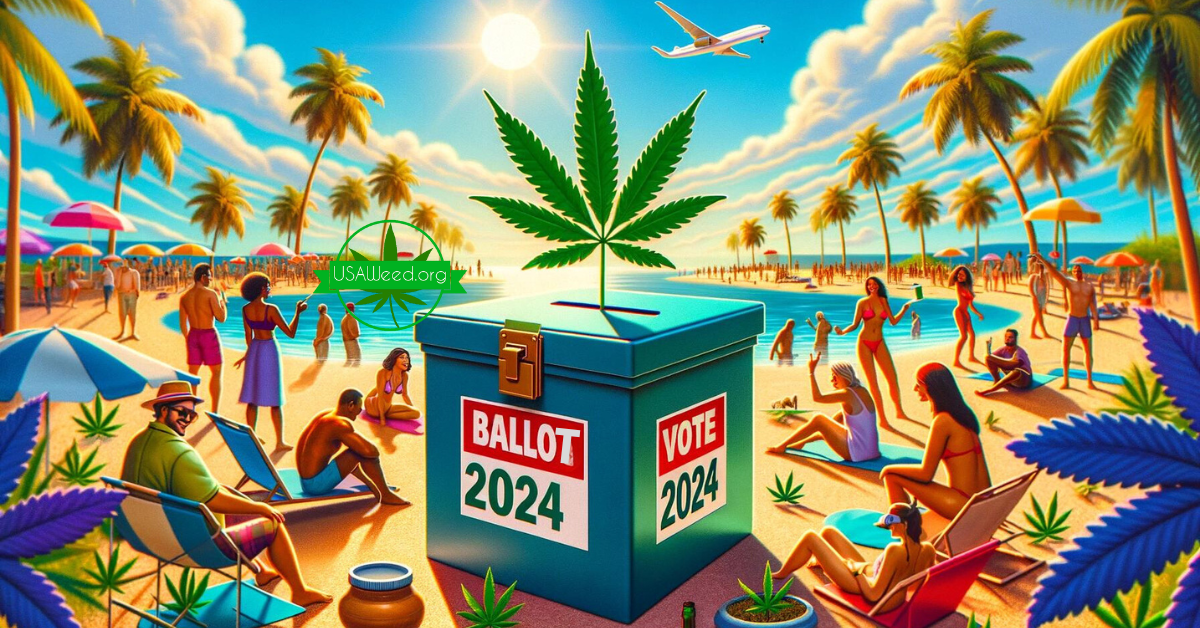Florida is on the verge of making a significant decision that could alter its cannabis landscape. In the 2024 general election, voters will have the opportunity to decide whether the state will legalize recreational marijuana for adults aged 21 and over.
If passed, the amendment would permit individuals to possess, use, and grow limited amounts of cannabis for personal use, regulated by the state.

Background and Support
The push for legalization has been driven by a growing recognition of the economic and social benefits observed in other states that have already embraced recreational cannabis. Advocates point to the potential for substantial tax revenue, which could be directed toward public services like education and healthcare.
Additionally, the cannabis industry could create thousands of jobs across the state, from cultivation to retail.
Groups like the “Make It Legal Florida” campaign have been at the forefront of gathering support for the amendment. They argue that legalizing cannabis would also reduce the burden on the criminal justice system by eliminating the need to prosecute low-level cannabis offenses. This could lead to significant cost savings and a reduction in the state’s prison population.
Challenges and Opposition
Despite the growing momentum, the initiative faces strong opposition. Critics raise concerns about the potential public health impacts, particularly on youth, and the challenges of ensuring safe usage and distribution. There are also worries about impaired driving and the social implications of increased cannabis availability.
Law enforcement and some public health groups have been vocal in their opposition, arguing that the legalization of recreational marijuana could lead to a rise in usage among teens and a potential increase in drug-related incidents.
They also express concerns about the adequacy of regulatory frameworks to manage a newly legalized market.

Political Landscape
The path to legalization has not been easy. Previous attempts to bring similar measures to the ballot were blocked by the Florida Supreme Court, citing misleading language in the proposed amendments. This time, however, the language has been refined, and the campaign has garnered significant support from both the public and prominent political figures.
Governor Ron DeSantis has not taken a clear stance on the issue, though his administration has generally been conservative regarding drug policy. However, public opinion appears to be shifting, with recent polls indicating that a majority of Floridians support the legalization of recreational marijuana. This growing public support could play a crucial role in the outcome of the vote.


